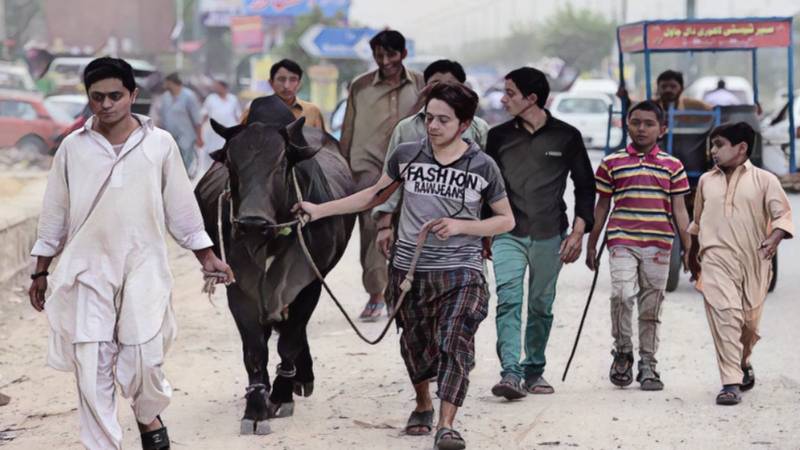
It’s election time again and the nation awaits with bated breath for the eventful day that is 8 February 2024. The air is thick with rumours, accusations and some wild speculations. Who is going to occupy the driving seat after the general elections? Has the result already been decided? Why bother with elections? Why not notify the selected ladla right now? The rumour mills are grinding away and we have no reason to blame anyone.
Every election in this country has been described as rigged or manipulated by the powerful establishment so nothing is new this time it is the repeat of all past elections. Nawaz Sharif is back again in spite of all the court cases against him and he is being projected as the new ‘Ladla’ (favourite) of the powerful establishment and the next Prime Minister – or the chosen one this time.
Before him, we had the proponent of Riasat-i-Madinah, the self-proclaimed messiah who committed one blunder after another and made a mess of the economy and openly proclaimed his love and admiration for the Taliban – and yet he still commands a cult following. Imran Khan, the chief of the PTI, very adroitly managed to polarise this society and sow seeds of hatred in the minds of his diehard followers who passionately believe in an Imran-Khan-or-bust policy. This is nothing new: even in the past, such a sense of deprivation and dejection brought to power fascist and extremist adventurers in Italy, Spain, Germany and elsewhere. But all these leaders brought nothing but misery, pain, death and destruction for their people and their countries. Many a country that faced severe economic hardship and the loss of hope – like Germany after the treaty of Versailles in the 1920s – saw the spectacle of the entire nation following a demagogue, with the promise of some utopian dream that ended in a disaster.
Pakistan has faced many trials and tribulations, some natural and some self-created during the last seventy six years but now the nation is in desperate need of a new narrative and new faces on the political chess board. The country needs a new national narrative that is based on a realistic appraisal of the country’s history and potential. The old narrative, which is supported by school curricula and years of media repetition, is believed by most salaried Pakistanis, who live in the cities and form the core support base of the current populist challenge. This includes serving and retired military men, civil servants and professionals such as doctors and engineers often employed by the government, who mostly live in government housing and send their children to government-subsidised schools. Political leaders and the far right wing intellectuals have always shouted from the roof tops that Pakistan has been a victim of the conspiracies of the Yahud and Nasara, meaning the Jews and the Christians. The nation has swallowed these sermons hook, line and sinker. Even the educated class believes that all our misfortunes are not our doing but the insidious conspiracy of some anti-Islamic forces, because this is what has been taught in our history books.
Our parents’ generation believed in the story that we are backward because we were a British colony for centuries but they do not realise the fact that the British succeeded because the Muslims of the Subcontinent were economically poor and militarily no match for the British forces, who were better trained and better armed. The defeat of Siraj-ud-Daula is taught to our students with the claim that the battle was lost because of the betrayal of Mir Jaffar. But they do not mention that the Nawab had 50,000 soldiers against the 3,500 sepoys of Robert Clive, and the Nawab’s army got its gunpowder wet before the battle, so he had no artillery.
The younger generation of this country has now to be recognised as future leaders. Generations of political leaders have miserably failed the youth of this nation. The election speeches of all the political contestants are now replete with the word “youth” – Nawaz Sharif and Bilawal Bhutto Zardari both claim to be the great champions of the youth. All the statements in the election campaign are focused on the miracles that all the political parties are promising to do for the youth of this country. Ironically, no political party in their election manifesto has bothered to enlighten the voters and the youth of the nation as to how they plan to improve the lives and the status of the youth and what is their lofty youth reforms program.
No mention is made of any changes to the education policy or generating some new opportunities for employment, or any type of scholarships for studies abroad or within the country. How will they create more job opportunities or improve the education and health facilities for the youth? Or perhaps it makes more sense to ask: how will it all be possible in this economic crisis, unless they have managed to get hold of some magic lamp?
In this election, the youth constitute the biggest segment of the eligible voters and the hollow promises of the political leaders appear to be nothing but a stunt to ensure the votes of these young men and women. What we need now is a charter of the economy, centred on the youth. The younger generation must be made a part of the policy making process. Today more than 60% of the population is below the age of 30 and it is this 60% that has to be the centre of our focus. The reform agenda of all political parties should spell out clearly their future programme for the betterment of the youth

